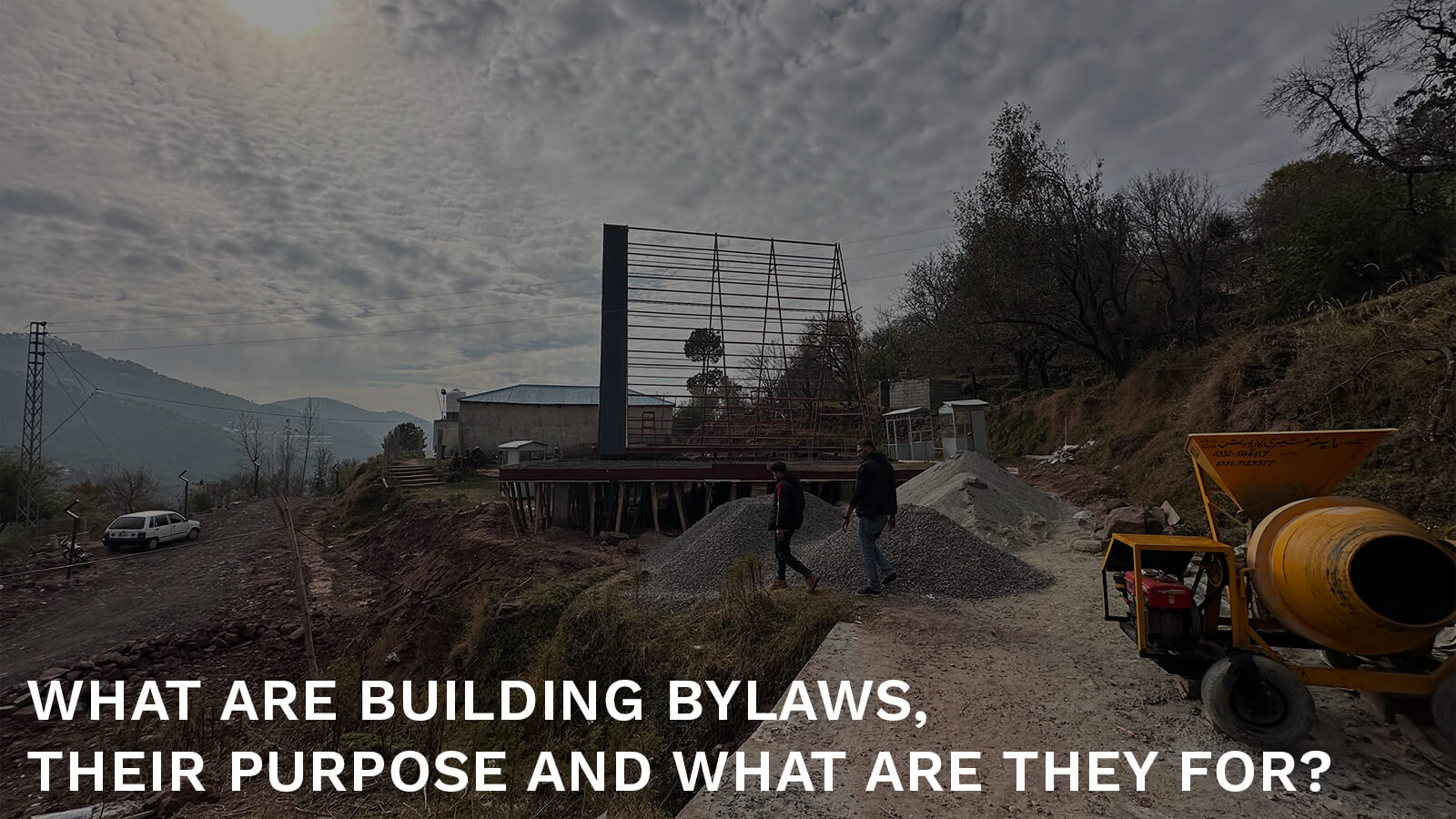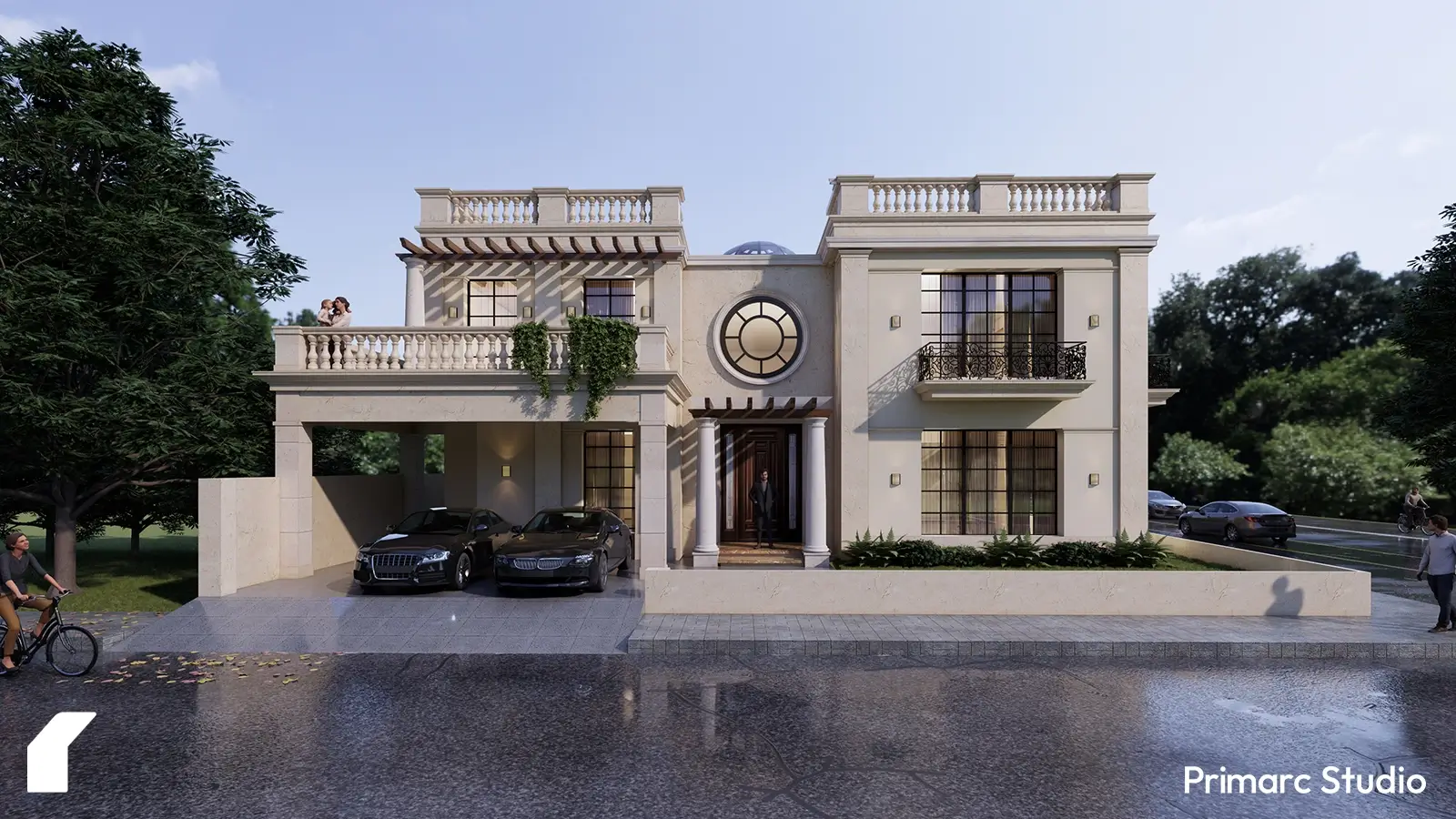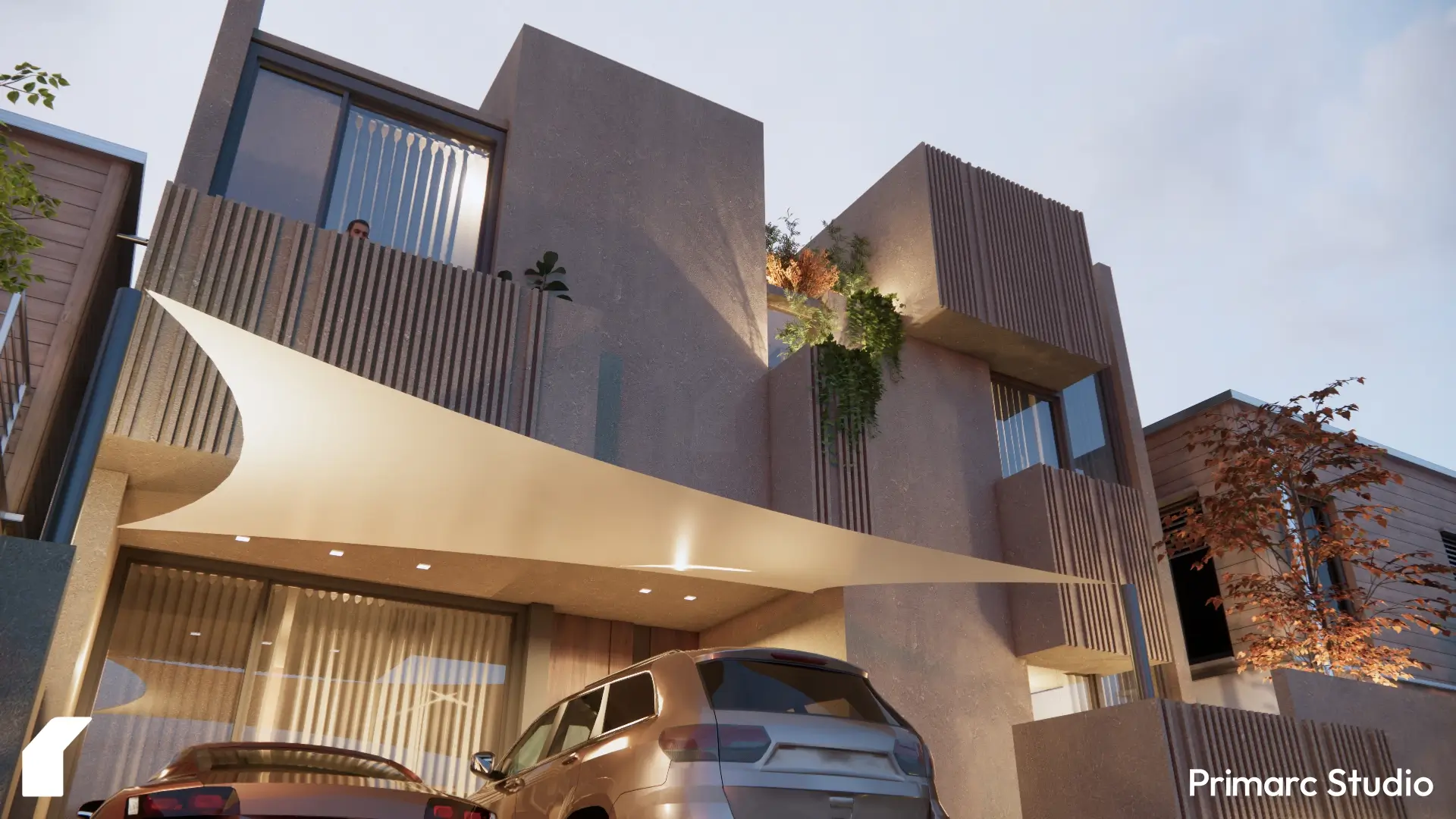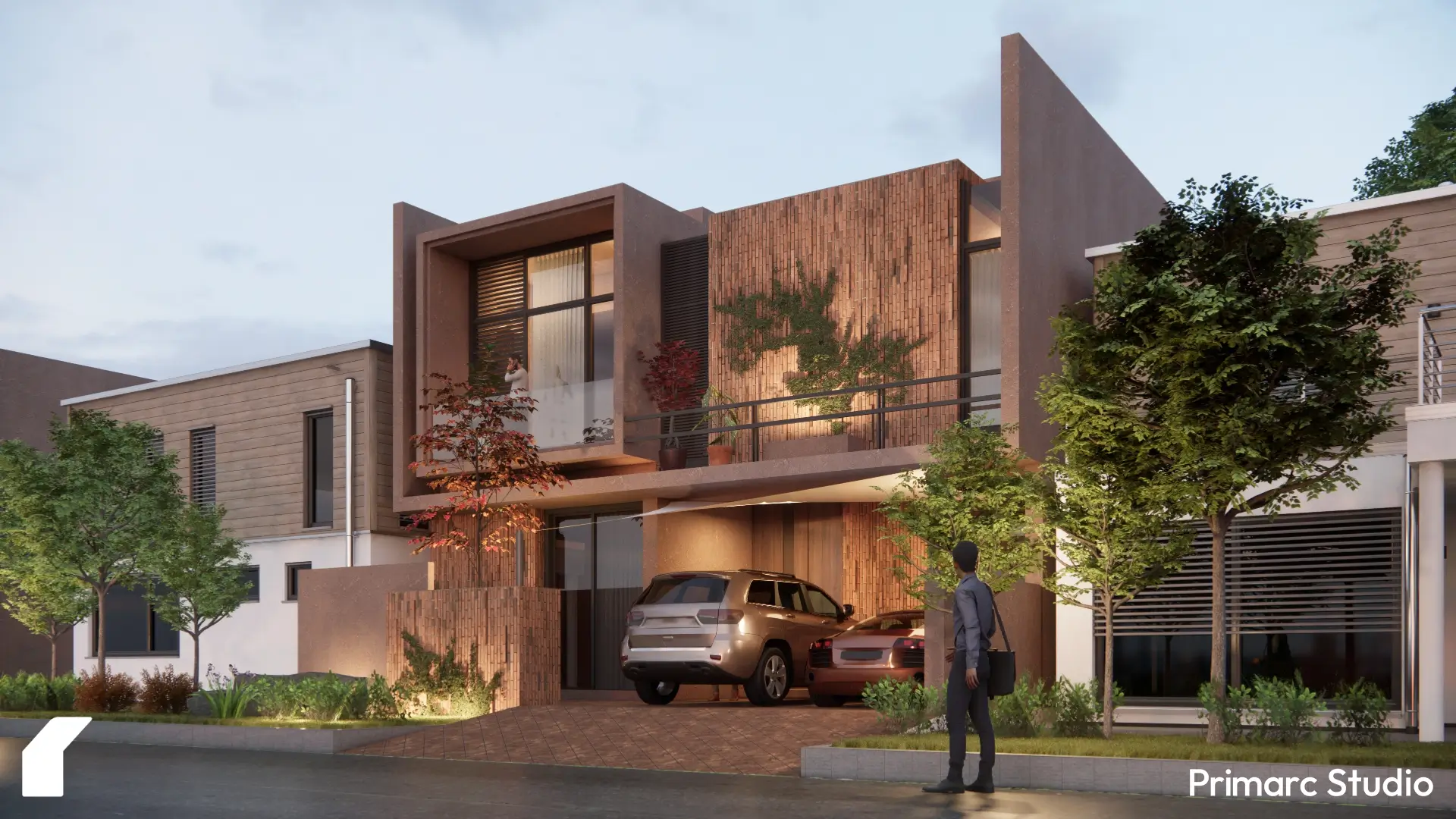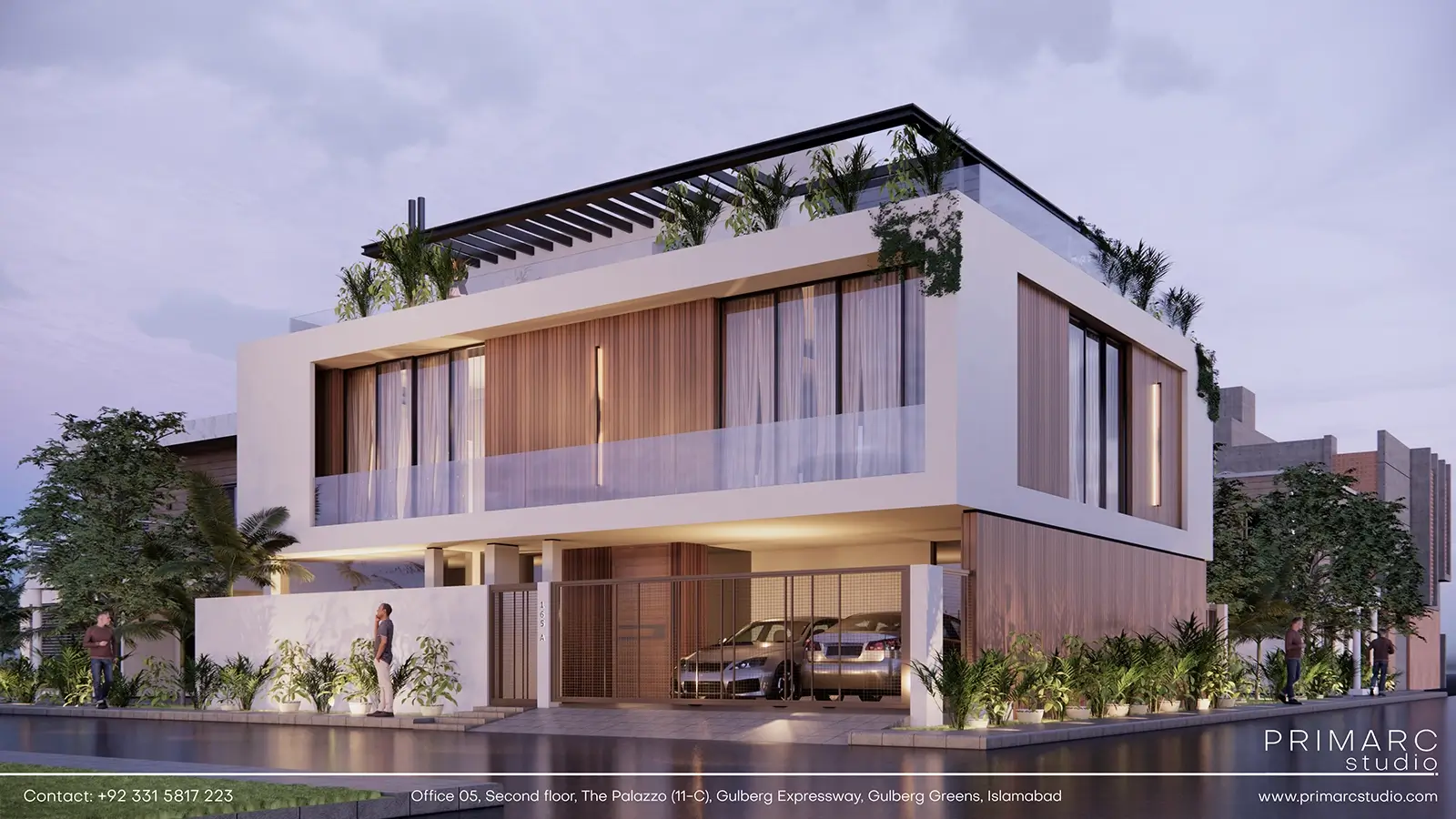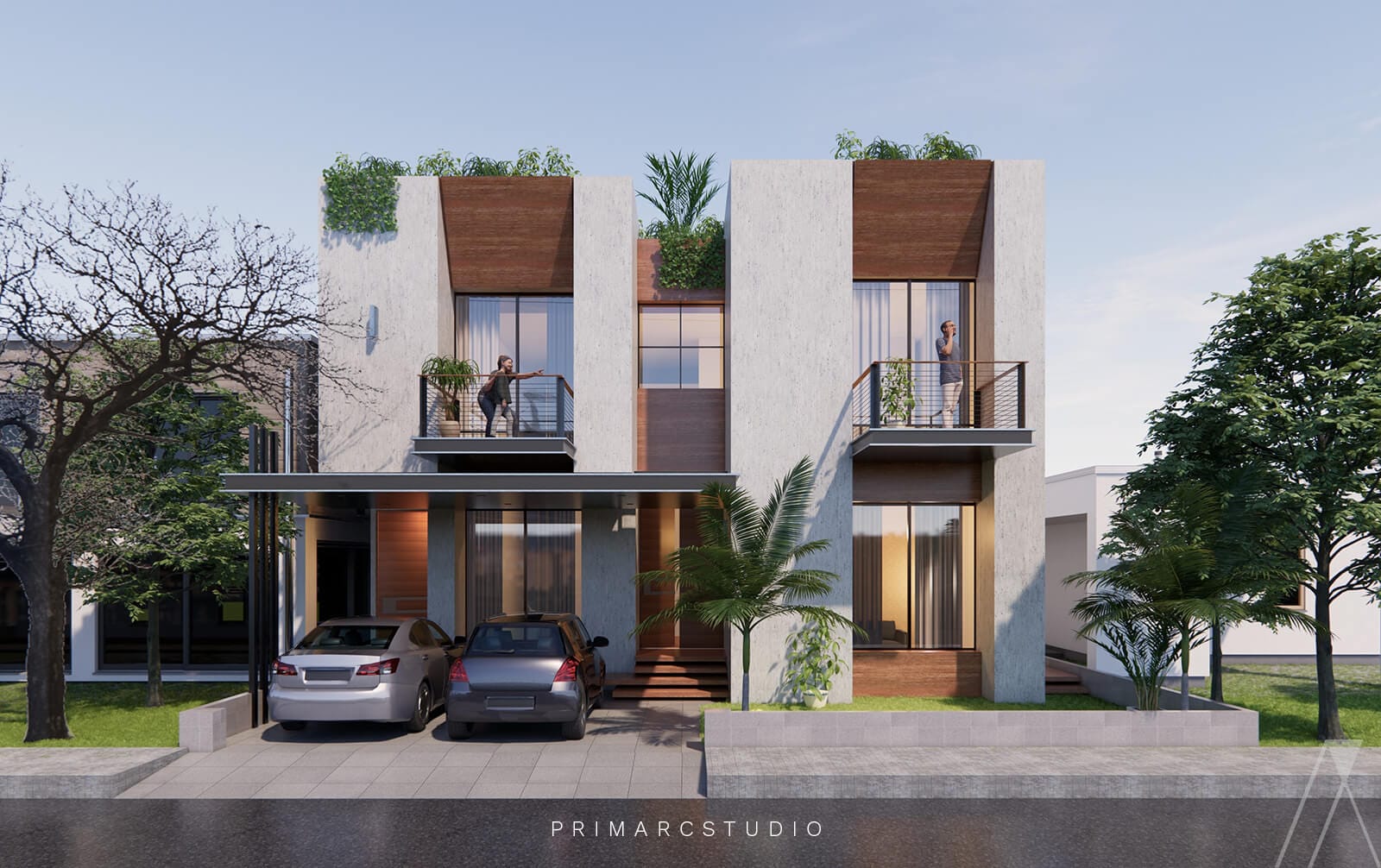What are Building Bylaws and What is Their Purpose?
Bylaws, also known as “qawanin / qwaneen” in Urdu, are rules and regulations established by local authorities or housing societies to manage specific areas or communities.
Bylaws play a crucial role in maintaining order, governance, and homogeneity at the local level. These regulations, often tailored to address the specific needs of a community, form the backbone of effective local governance. In Pakistan, by-laws serve a diverse array of purposes, ranging from environmental protection to ensuring public safety.
Understanding what bylaws are and their purpose in Pakistan provides insights into their significance in fostering a well-regulated and harmonious society.
What are Bylaws?
Byelaws are local laws or regulations made by a municipality, district, or other local authority, which are enforceable within a specific area.
Unlike national laws, which apply uniformly across the country, bylaws are tailored to meet the needs and circumstances of local communities. They cover a wide range of issues, including public health, safety, and environmental protection, ensuring that local governance is responsive and effective.
Historical Context of Bylaws
In Pakistan, the adoption of bylaws has evolved significantly since independence, reflecting the country’s changing social, economic, and environmental landscape.
Initially influenced by British colonial laws, Pakistan has since amended and developed its framework of bylaws to address local governance challenges more effectively. But it is essentially built on colonial laws that have now been localized.
Purpose of Bylaws and Building Bylaws in Pakistan
Local Governance
Byelaws empower local authorities to regulate and manage their areas effectively, ensuring that local issues are addressed promptly.
They provide a legal framework for municipalities and housing societies to enforce regulations on matters such as zoning, waste management, and public health, which are essential for orderly urban development and community well-being.
Public Participation
Public participation is an integral part of the bylaw-making process.
Engaging the community ensures that bylaws are not only effective but also reflect the needs and values of the residents. Public consultations, hearings, and feedback mechanisms allow community members to voice their concerns and suggestions, fostering a sense of ownership and compliance with the regulations. Although this is the process, some bylaws are made without public consultation and hearings also.
Building and Construction Bylaws
Building and construction bylaws regulate the development of infrastructure within local communities. They set standards for construction materials, building designs, and safety measures to ensure that buildings are safe and sustainable.
Compliance with these bylaws is crucial for preventing structural failures and ensuring the safety of residents. Bylaws for buildings also limit the user to create houses in a certain covered area range. Making sure, the facilities of cities are not overburden.
Bylaws significantly enhance the quality of life within communities. They create a structured and orderly environment, where public spaces are well-maintained, and services are efficiently delivered. This leads to safer, cleaner, and more vibrant communities.
Other Bylaws
There are also other bylaws like municipal bylaws, environmental bylaws, health and safety bylaws, and more. Each bylaw comes with robust mechanisms to implement them, inspections, fines, legal notices and even taking possession in case of serious violations.
Bylaws of Societies and Cities
Bylaws of cities like Lahore, Islamabad, and Peshawar, as well as societies like CDA, RDA, PDA, and many others, have their own buildings bylaws. The majority of them are similar with minor differences between them. Documents required by each society are different and you should read about them before submitting your residential design documents.
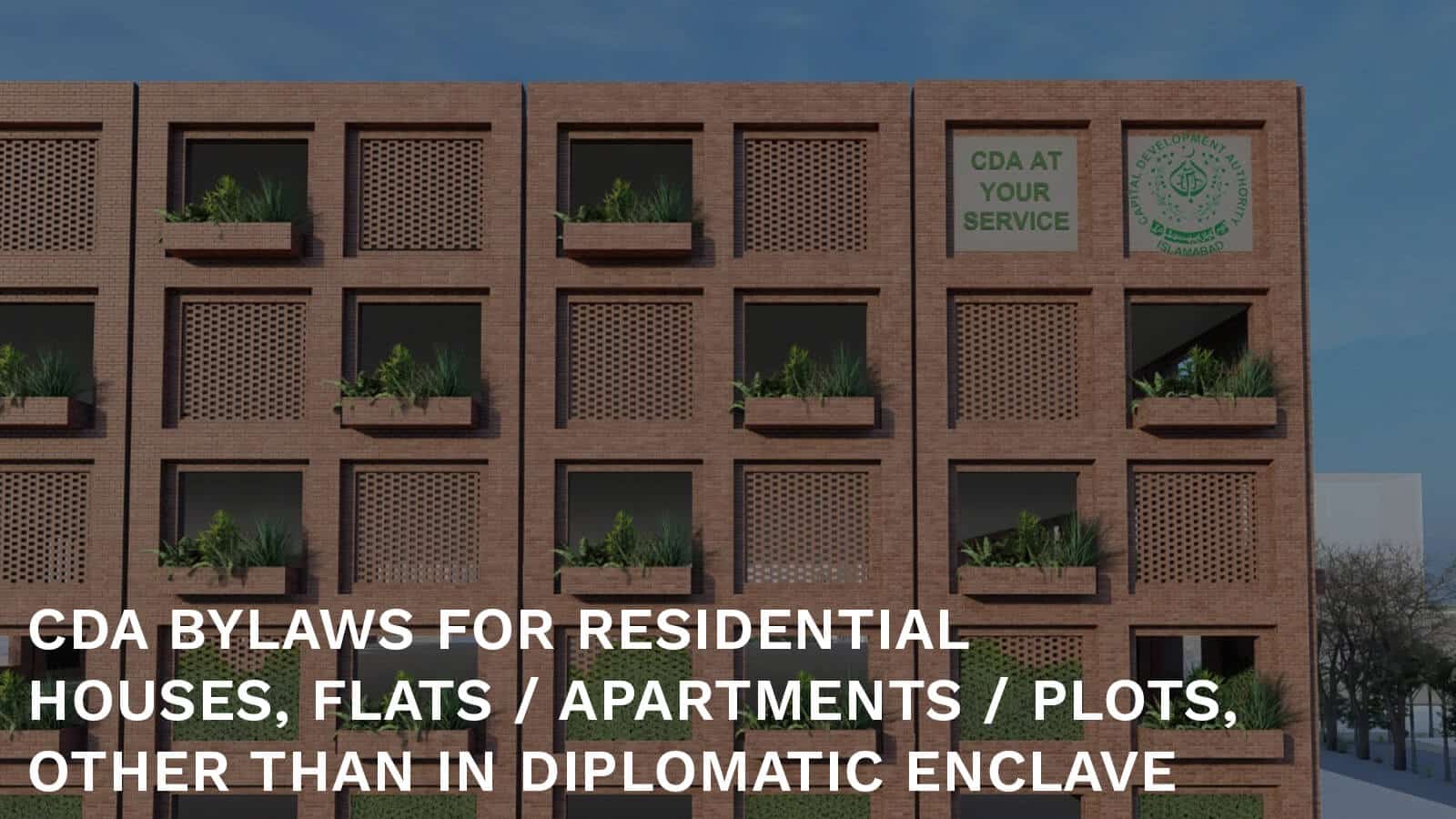
CDA Bylaws for Residential Houses Other than in Diplomatic Enclave
Islamabad, Pakistan’s modern capital city, owes its development to the Capital Development Authority, or CDA. Established in 1960, the CDA acts like a city architect, planning, building, and maintaining Islamabad. They’re responsible for everything from iconic landmarks and sprawling parks to infrastructure and even some housing projects.
You can read about CDA residential, plots, and apartments bylaws here.
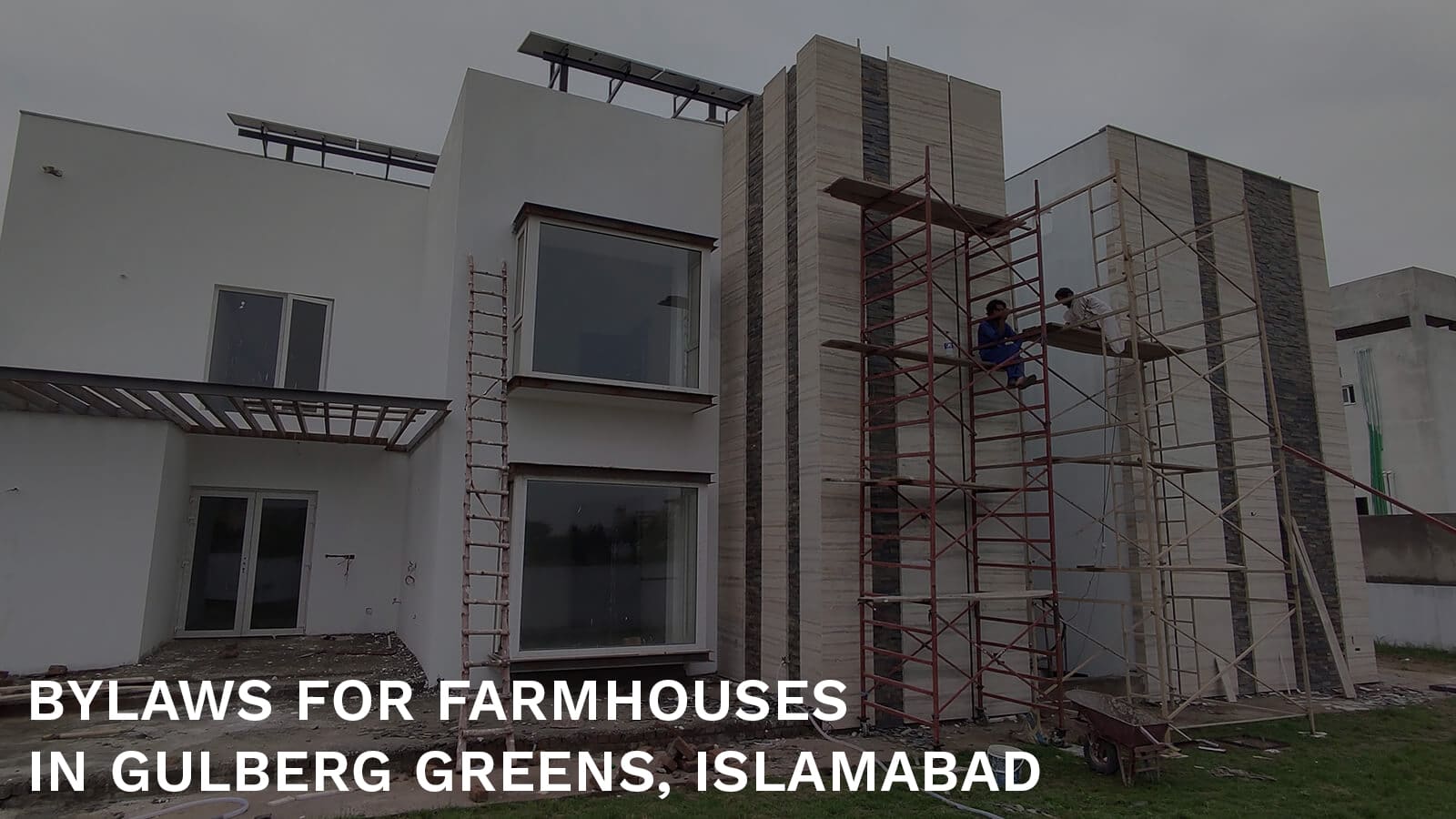
Gulberg Greens, Islamabad Bylaws.
Nestled within the Islamabad Expressway’s prime location, Gulberg Greens Farmhouses offer a unique opportunity for those seeking a luxurious escape. With options ranging from 4 to 10 Kanals, there’s ample space to design your dream farmhouse.
You can read about Gulberg Greens Farmhouse’s bylaws here.
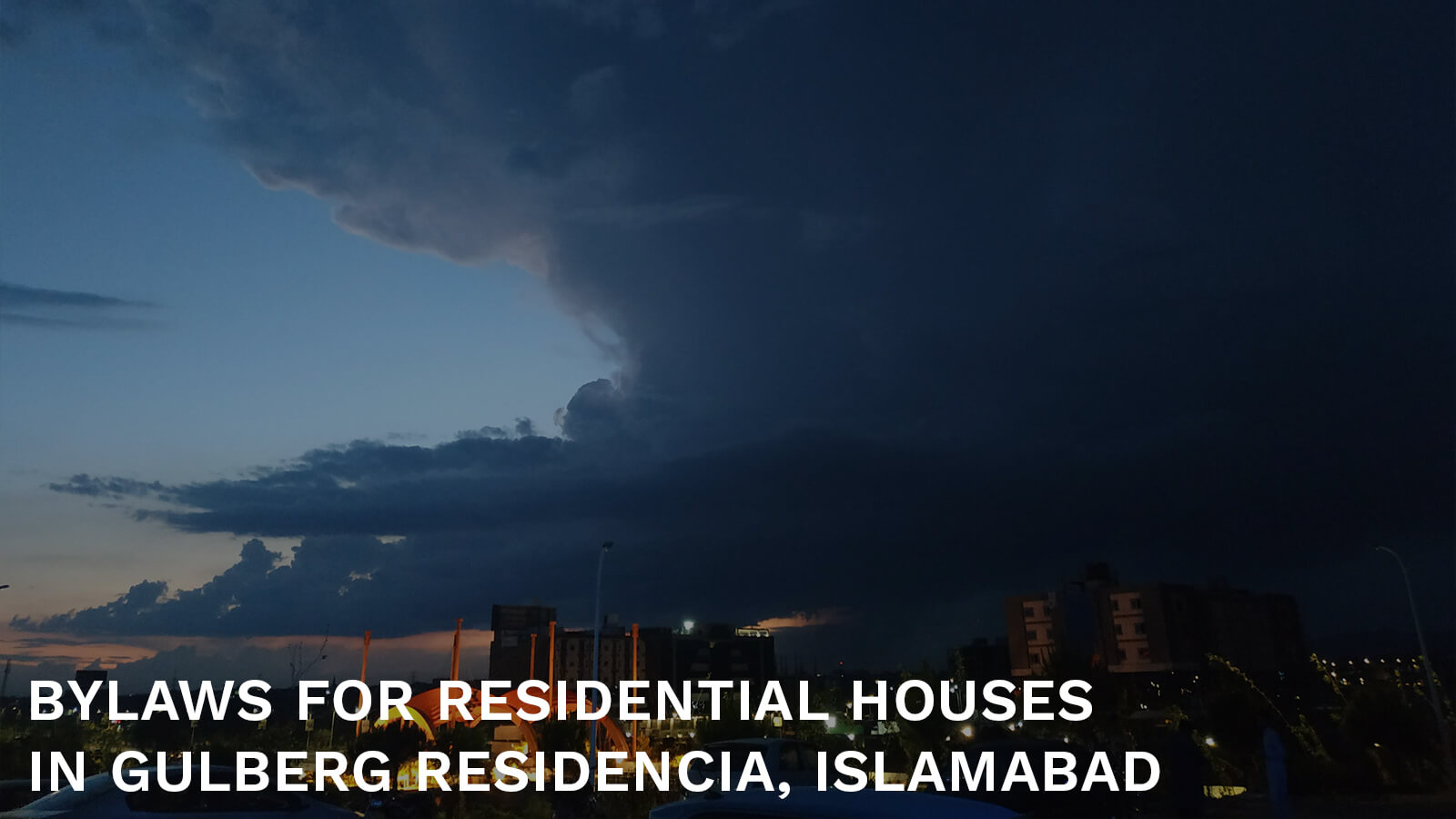
Gulberg Residencia, Islamabad Bylaws.
Gulberg Residencia, located in Zone-5 is a high-end housing gated society in Islamabad, Pakistan, known for its modern amenities and infrastructure.
It’s part of the larger Gulberg Islamabad project and offers a variety of residential options which is a project by Intelligence Bureau Employees Cooperative Housing Society (IBECHS).
You can read about Gulberg Residencia bylaws here.
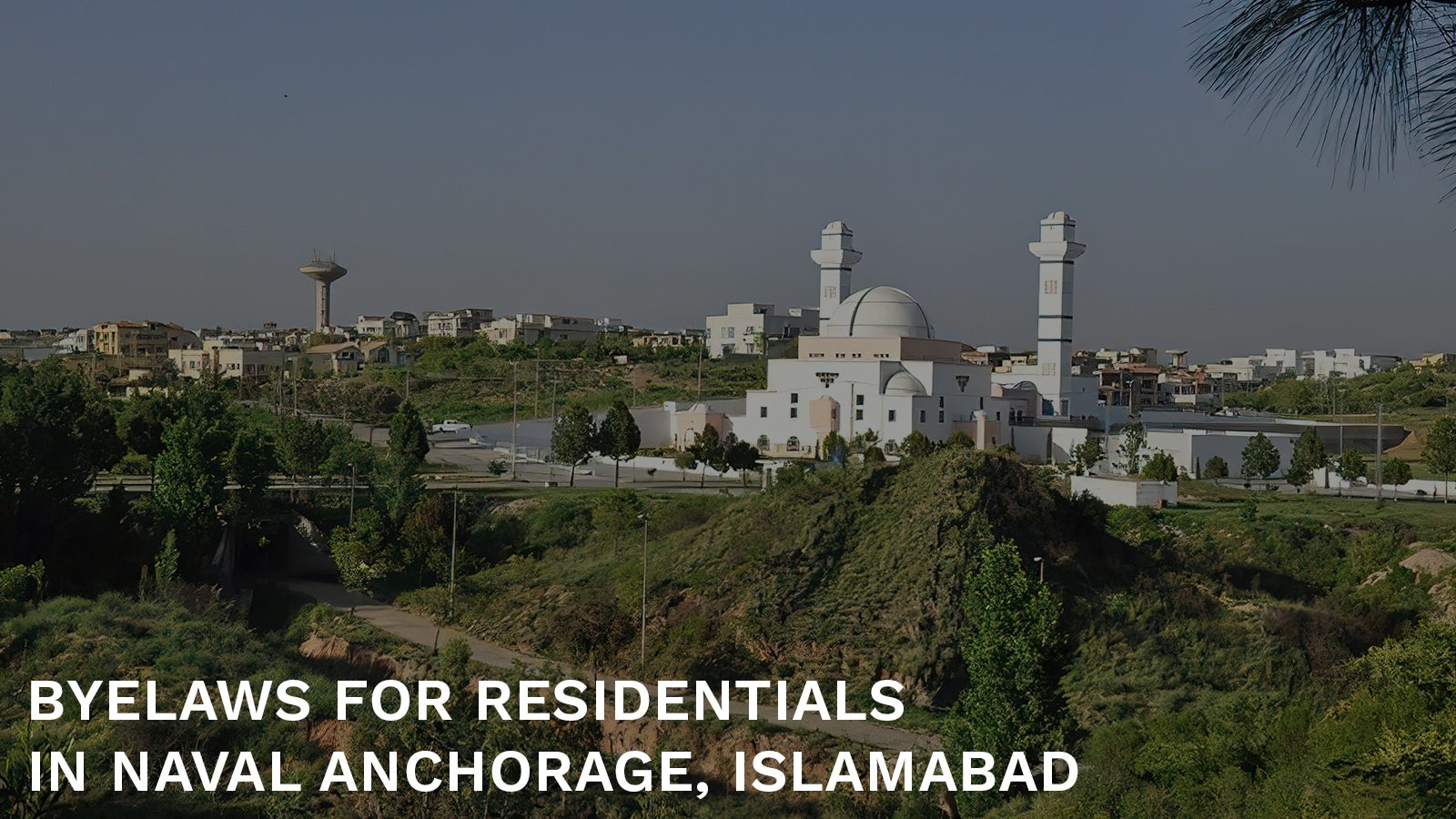
Naval Anchorage, Islamabad Bylaws.
This residential project isn’t your typical housing society. It’s a specifically designed gated community catering to the families of Pakistan’s esteemed Navy personnel.
Developed with the well-being of Navy officers, employees, and martyrs’ families in mind, Naval Anchorage offers a secure and comfortable living environment. Residents can enjoy spacious plots and well-constructed houses, all within a secure community.
You can read about Naval Anchorage Bylaws here.
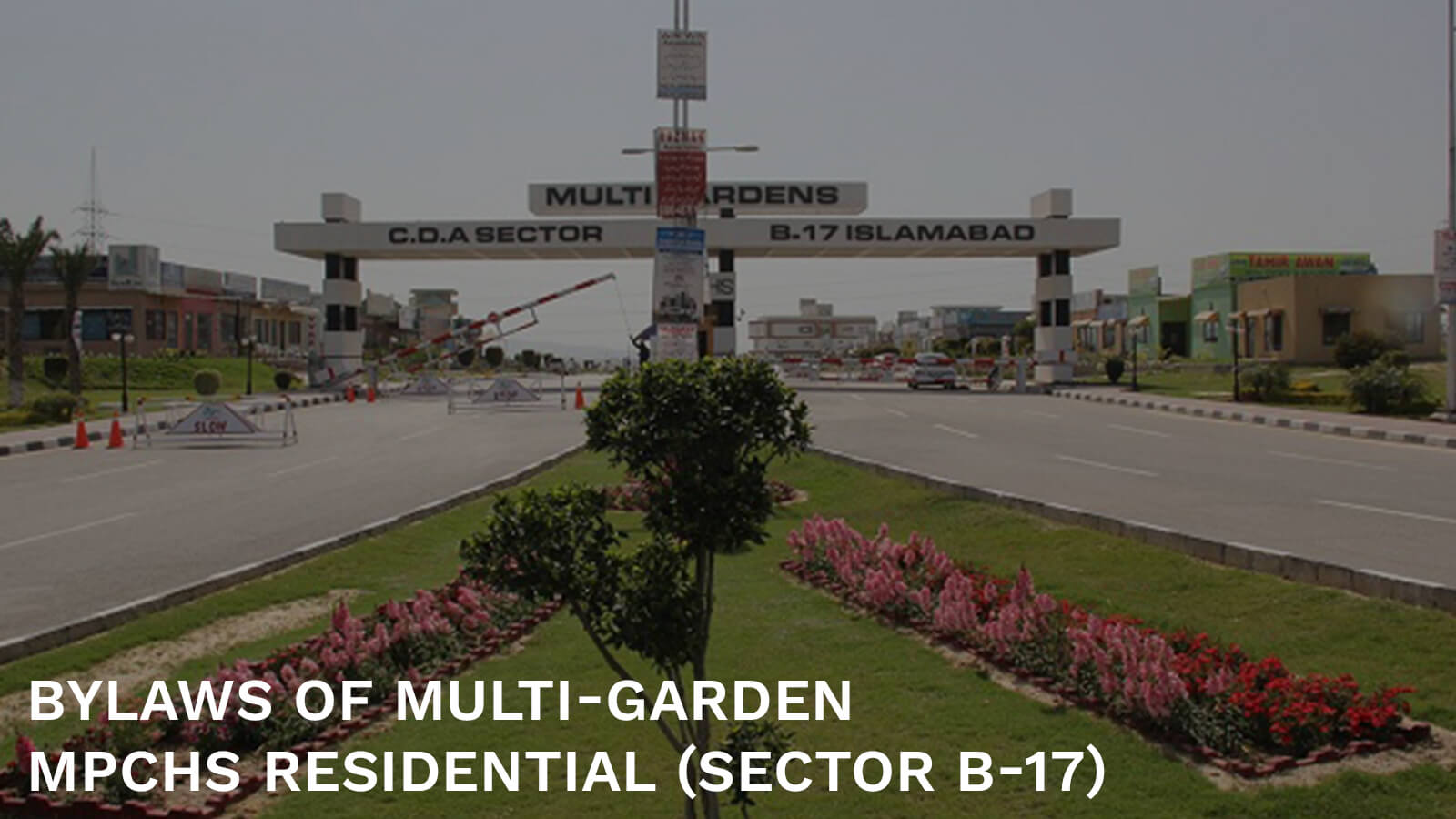
Multigarden MPCHS, Residential (Sector B-17), Islamabad Bylaws.
Situated on the prominent Fateh Jang Road in Islamabad, Multi Gardens B-17 is a residential project by the well-regarded Multi Professionals Cooperative Housing Society (MPCHS). This strategically placed community offers easy access to both the Tarnol Interchange on the M-1 Motorway and the Tarnol Railway Crossing, making it a well-connected location.
Primarc Studio Architects
The Primarc Studio editorial team consists of architects and designers specializing in modern residential projects, interior designs and commercial designs across Pakistan. Together, we share insights on design trends, construction costs, and project case studies.


